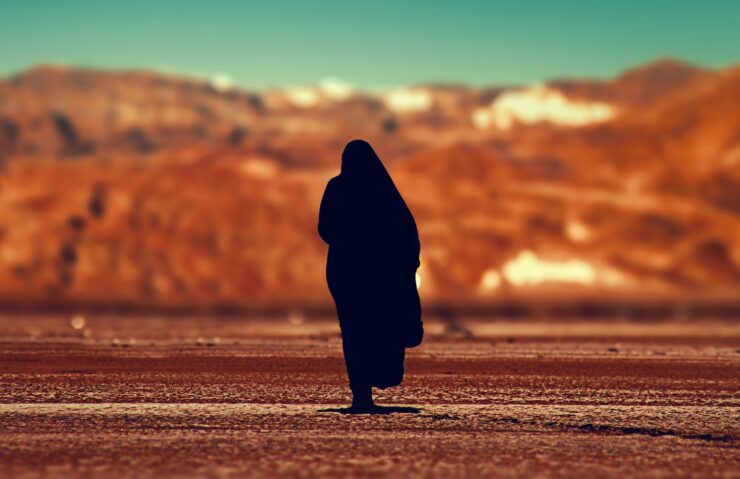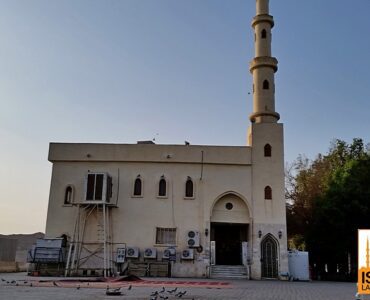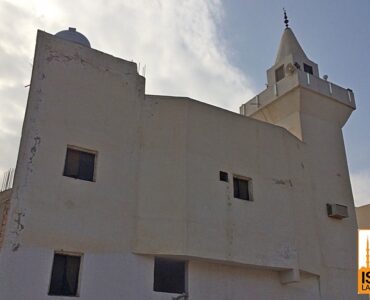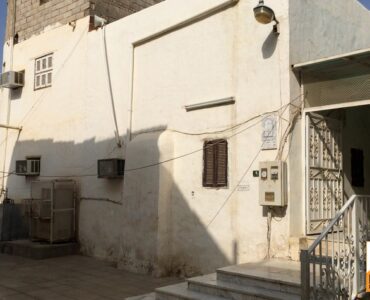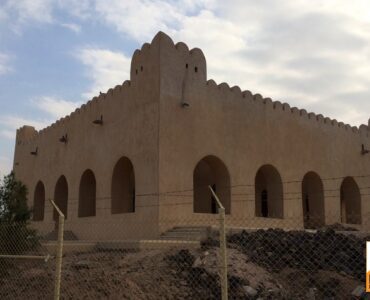Hajar (AS) is a symbol of strength, perseverance, and faith. She is an important figure in Islamic history, and her story is a reminder of God’s mercy and compassion.
Let’s discover the inspiring legacy of Hajar (AS) in Islam, gain a deeper understanding of this remarkable woman’s journey and how her story continues to impact us today.
Who is Hajar (AS)?
Hajar (AS) is a revered figure in Islam. She was the wife of the patriarch and Islamic prophet Ibrahim (AS) (Abraham (AS)) and the mother of Ismā’īl (Ishmael) (AS).
She is mentioned in the Quran, but not by name. Her story is told in the hadith, the sayings and traditions of Prophet Muhammad (Peace Be Upon Him).
What nationality is Hajar (AS)?
According to Islamic tradition, Hajar (AS) was a slave woman from Egypt who was given to Sarah, Ibrahim (AS)’s wife, as a concubine.
Sarah was unable to conceive, so she gave Hajar (AS) to Ibrahim (AS) in the hope that she would be able to bear him a child. Hajar (AS) eventually gave birth to Ishmael (AS).
Why is Hajar (AS) important in Islam?
Hajar (AS), also known as Hagar, is a significant figure in Islam who is mentioned many times in the Quran and in Islamic historical sources.
She is remembered for her faith, perseverance, and devotion, and her experiences serve as a reminder for Muslims to have patience and trust Allah Subhanahu wa ta’ala (SWT) in times of difficulty and turmoil.
Hajar (AS) and her son, Ismael (AS), played a pivotal role in the history of Islam. According to the Quran and Islamic tradition, she and her son were sent by Allah (SWT) to the Valley of Mina to find water to save their community.
After searching for years without any success, she became tired and thirsty, and almost gave up hope. However, Allah SWT sent an angel, Jibreel (AS), to guide her to a spring of water, known as Zamzam, which saved their lives.
Muslims believe that Hajar’s (AS) devotion and faith in Allah (SWT) led to her becoming an important figure in Islamic history.
Her story serves as a reminder to have faith, patience, and perseverance in times of difficulty, and that Allah SWT cares for His servants and will provide for them in their times of need.
The wife of Prophet Ibrahim (AS)
Hajar (AS) was the second wife of Prophet Ibrahim (AS). Prophet Ibrahim’s first was Sarah (AS).
Hajar (AS) name meaning
The word “Hajar” is derived from the Arabic word “هاجر”, which means “to migrate or emigrate”. The name is also the basis of the word Haj, the annual pilgrimage to Mecca performed by Muslims.
Hajar (AS) alone in the desert
Allah SWT commanded Ibrahim (AS) to take to take his wife Hajar (AS) and Ishmael (AS) to a barren land in what is now Mecca, and he left Hajar (AS) and Ishmael (AS) in the desert with only a small amount of food and water.
Hajar (AS) and Ishmael (AS) were left to fend for themselves in the desert. They were very thirsty, and Hajar (AS) ran back and forth between two hills, Safa and Marwah, seven times in search of water.
Finally, Allah (SWT) sent the angel Jibril (Gabriel) to guide her to the well of Zamzam, a well that still exists today.
Hajar (AS) and Ishmael (AS) lived in Mecca for many years. Ishmael (AS) grew up to be a strong and pious man. He married a woman from the tribe of Jurhum, where he worked and had many children.
One of Ishmael’s (AS) descendants was prophet Muhammad (PBUH), the final and seal of all prophets of Islam.
How did Hajar (AS) put her trust in Allah (SWT)?
According to Islamic tradition, when Ibrahim (AS) was commanded by Allah (SWT) to leave Hajar (AS) and their infant son Ismail in the barren desert of Mecca, Hajar (AS) demonstrated her unwavering trust in Allah (SWT) in several ways:
Acceptance of Allah’s (SWT) Decree: When Ibrahim (AS) informed Hajar (AS) of Allah’s command, she immediately accepted it without hesitation. She recognised that it was Allah’s will and trusted that He would take care of her and her son.
Tawakkul (Reliance on Allah (SWT) : Hajar (AS) placed her complete reliance on Allah The Most Glorified, the Most High. She trusted that He would provide for her and her son. She knew that Allah’s mercy and protection were sufficient for them in the harsh desert environment.
Seeking Allah’s (SWT) Help: When Hajar (AS) and her son ran out of water, she did not despair. Instead, she turned close to Allah (SWT) in supplication and prayer. Her faith and trust in Allah’s mercy and power were so great that Allah (SWT) sent the angel Jibril (Gabriel) to guide her to the well of Zamzam, which miraculously sprang forth to provide her with water.
Hajar’s (AS) trust in Allah (SWT) was demonstrated by her acceptance of Allah’s (SWT) decree, reliance on Allah’s (SWT) mercy and protection, and seeking Allah’s help during times of difficulty. Her unwavering faith and trust in Allah (SWT) serve as an example for Muslims to follow in their own lives.
Running between Safa and Marwa
One of the rituals Muslims perform the pilgrimage to Mecca, known as Hajj or Umrah, is “Sa’ee” (Sa’i). The term refers to the act of rushing or running back and forth between the two hills of Safa and Marwa.
In Islamic tradition, Hajar (AS) had to run back and forth between Safa and Marwa in search of water for her and her young son, Ismail (AS).
The practice of Sara has become a significant part of the Hajj rites, as Muslims re-enact the trials of Hajar (AS) and her son in search of water.
The act of running between Safa and Marwa is not just a simple physical exercise. It symbolises the trials and challenges that Hajar (AS) and her son had to face in order to find water in the desert.
It also serves as a reminder for Muslims to strive in the sake of Allah Almighty, regardless of the hardships and difficulties they may face.
Sa’ee or Sa’i is a symbolic ceremony that serves as a reminder for Muslims to be resilient and perseverant in their lives, just as Hajar (AS) demonstrated in her search for water. It also fosters unity and solidarity among Muslims, as they perform the rites of Hajj together.
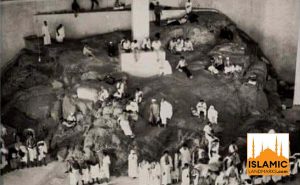

Hajar (AS) and Zamzam
In Islam, Zamzam is a blessed and holy water source that holds great significance. It is believed to have originated from a miracle involving the Prophet Ibrahim (Abraham) and his wife Hajar (AS) (Hagar) in the valley of Mecca.
Who dug the Zamzam well?
Hajar (AS) and her infant son Ismail (AS) were left in the desert valley of Makkah by Prophet Ibrahim, and when their water supply ran out, Hajar (AS) desperately searched for water for Ismail (AS).
According to tradition, the Angel Jibril (AS) appeared and struck the ground, causing a spring of water to gush out which became known as the Zamzam well.
Is Zam Zam water a miracle?
Muslims believe that this water is a gift from Allah and has healing properties.
Drinking Zamzam water is considered to be a blessed act, and many Muslims drink it during the Hajj and Umrah pilgrimages to Mecca.
It is also commonly consumed by Muslims on other occasions and is believed to have many benefits, both physical and spiritual.
According to Islamic tradition, Prophet Muhammad (PBUH) is reported to have once said, “The water of Zamzam is for whatever it is drunk for.”
This statement highlights the belief that Zamzam water can provide blessings and fulfill needs, both worldly and spiritual.
Why hasn’t the Zamzam well dried up?
The Zamzam well has never run dry, even during prolonged droughts for over 4000 years.
The reason for the Zamzam Well’s perpetual flow of water is not fully understood scientifically. Some believe that the well is fed by an underground aquifer or by groundwater fed through fractures in the underlying rock.
Others attribute its perpetual flow to the spiritual power that stems from the well’s connection to the Prophet Muhammad (PBUH) and the Hajj rituals.
Regardless of the explanation, the Zamzam Well is highly treasured by Muslims and is considered one of the most sacred places in Islam.
The sacredness of the well is reflected in the millions of pilgrims who visit it every year during Hajj and Umrah, and in the large number of Muslims who drink from its water to this day.
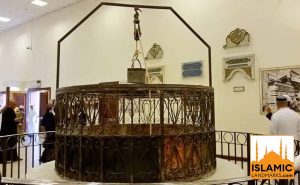

Who was Hajar’s (AS) spouse?
Hajar (AS) was the wife prophet Ibrahim (AS).
Name of Hajar (AS) children
Hajar (AS) gave birth to a baby son for Prophet Ibrahim (AS) named Ismail (AS). She didn’t have any other child other than Prophet Ismail (AS) who was the eldest son of prophet Ibrahim (AS).
Ismail (AS)
Ismail (AS) the son of Ibrahim (AS), Ishmael (AS) who lived in the valley of Makkah. In Islam, Ishmael (AS) is considered one of the Prophets and Messengers of Allah (SWT) and is believed to be the son of the Prophet Ibrahim (AS).
Prophet Ismail (AS) who is the eldest son of Prophet Ibrahim (AS) is highly regarded in Islam as a symbol of Arab ancestral heritage and as the progenitor of the Arab people.
Ismail (AS) is a prophet for people living in the Arab valley who was granted the honor of building the Kaaba, the holy site in Makkah that is a central spiritual focus for Muslims.
Lessons we can learn more Hajar (AS)
Hajar’s (AS) story is an inspiration to us all. She is a reminder that people can overcome any challenge if we have faith in Allah (SWT) and trust in His plan for our lives. Here are some of the lessons we can learn from the story of Hajar (AS).
Perseverance
Hajar (AS) faced many challenges in her life, but she never gave up. She was a strong and determined woman who never lost faith in God.
Trust in Allah (SWT)
Hajar always trusted in Allah (SWT) and His plan for her life. She knew that He would never abandon her, even when things were tough.
Optimism
Even when things were at their worst, Hajar (AS) always remained optimistic. She never lost hope that Allah (SWT) would help her and her son.
Selflessness
Hajar (AS) was a selfless woman who always put the needs of others before her own life. She was willing to sacrifice her own comfort and safety for the sake of her son.
Devotion
Hajar (AS) was a devout woman who was always devoted to Allah (SWT). She prayed to Him for guidance and strength, and she always obeyed His commands.
- Patience
Hajar (AS) was a patient woman. She waited patiently for Allah (SWT) to provide her with water, and she waited patiently for her son to grow up.
- Kindness
Hajar (AS) was a kind and compassionate woman. She was always willing to help others, even when she was in need herself.
- Resilience
Hajar (AS) was a resilient woman. She was able to bounce back from adversity and continue to work live her life with strength and determination in Makkah.
- Fortitude
Hajar (AS) was a woman of fortitude. She was able to endure hardship and pain without giving up.
Summary – The story of Hajar (AS) in Islam
Hajar’s (AS) historical and religious significance makes her an important figure in Islamic history, and the lessons we learn from her story continue to serve as a reminder to have faith, patience, and perseverance in times of trial.
She is known for her perseverance and faith in Allah Almighty during her struggles in the desert, and her story serves as a reminder to Muslims to have patience and trust in Allah (SWT) during difficult times.
Hajar’s (AS) story is a reminder that we can all be strong, resilient, and compassionate people. We can all learn to trust in Allah (SWT), have faith in His plan for our lives, and persevere through any challenge.

